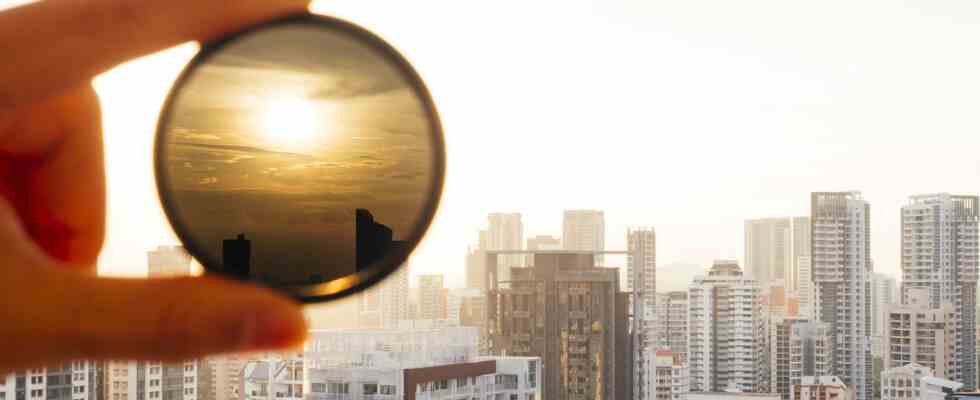podcast
Status: 25.11.2022 5:05 a.m
Vienna is considered an international role model for cheap rents, and in Singapore it’s not just the rich who own their own homes: the “Import of Ideas” podcast shows ways in which living in big cities can remain affordable.
Even before the ancillary costs skyrocketed, living in Germany was expensive: Whether buying or renting – prices are constantly rising, especially in and around large cities. And Germany can hardly keep up with the construction of new apartments. High prices hit those who already have the least anyway hard.
In 2021, the union-affiliated Hans Böckler Foundation published a study on living in major German cities. This shows that almost half of the approximately 8.4 million households that rent in a major German city spend more than 30 percent of their net income on rent including heating. About a quarter of households even have to spend at least 40 percent of their income on rent and utilities – and almost a million households even more than half of their income. The new episode of “Import of Ideas” – the international podcast of the daily News.
How cheaper to live?
11/25/2022 5:00 am
Vienna: Housing as a human right
Austria’s capital, Vienna, is considered an international role model for affordable rents. The secret lies in the housing construction driven by the city itself: in the period after the First World War, new living space was urgently needed. The city therefore bought large areas of building land and began to build apartments itself. With a few interruptions, it has stuck to this building policy to this day.
The reason for this clear line is the understanding that housing is a human right. That is why the city has always “held on to municipal housing and subsidized housing and has not succumbed to trends that have been pursued by privatization and the free forces of the market,” explains Karin Ramser, director of the municipal property management company Wiener Wohnen.
Since 2018, for residential construction projects by non-urban investors, two-thirds of the apartments have to be subsidized living space. There is a reason why the city can demand this: Anyone who wants to build in Vienna must use building land from the city, because the city never sells the building land, only building rights. Subsidies are only available in exchange for cheap rents.
The Karl-Marx-Hof in Vienna was opened in 1930 and is a listed building.
Image: picture alliance / Willfried Gre
Homeownership: The norm in Singapore
Singapore is one of the world’s most expensive cities when it comes to rent on the open market. Nevertheless, it is very easy for the local population to own their own home: the reason for this is the so-called “Housing and Development Board”, or HDB for short. It was founded in the early 1960s, shortly before Singapore gained independence from Great Britain. At that time, around two-thirds of the population lived in slums, and the HDB was supposed to provide affordable, but also adequate housing as quickly as possible. Today, around 80 percent of the population own their own home.
An HDB residential complex towers behind Singapore’s Chinatown: The fact that condominiums there are not only affordable for the rich is due to the city’s housing policy.
Image: picture alliance / newscom
It’s not just the super-rich who live in Singapore: Subsidized prices and cheap financing mean that socially disadvantaged citizens can also afford an HDB apartment. The apartments are leasehold for 99 years. The fact that the HDB apartments are not only rented is part of a philosophy. The government in Singapore believes that people look after property very differently than rented accommodation.
They tell more about how Vienna and Singapore make it possible for their population to live cheaply and what Germany can learn from this ARD correspondents Wolfgang Vichtl and Sandra Ratzow in “Ideas Import” – the foreign podcast of daily News.
Search for ideas in the tagesschau podcast
For many questions that arise again and again in everyday life, there are guaranteed to be good ideas, possible role models and solutions somewhere in the world: How better to deal with sharply rising energy prices? What to do to eat healthier? Why do people in other countries sometimes live longer?
The foreign podcast daily News searches and finds them – together with the correspondents in the 30 foreign studios of the ARD. idea import wants to look beyond the proverbial box and provide fresh ideas for new input in political and social debates.
idea import will be published every second Friday from April 22, 2022. You can listen to the podcast anytime at home or on the go on your smartphone – every second Friday morning you will find a new episode on our website, in which ARD audio library and on numerous other podcast platforms.

